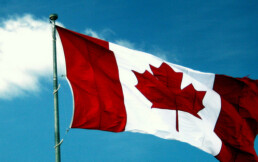A revised document checklist imposes heavy burden on co-habiting spouses wishing to complete sponsorship applications
The new application kit released on December 15, 2016, saw a number of substantive changes aimed at making the application process easier and faster. Among these changes was a revised checklist listing all the documents that applicants and their sponsors are required to submit to the IRCC with their applications. An immigration lawyer in Canada can assist applicants with these new requirements in order to avoid unnecessary delay and difficulty in the application process.
Under this new checklist, couples who are residing together must submit a certain number of specific documents as proof of their relationship. Their options include joint rental agreements, joint utilities accounts, or important documents like insurance policies showing the same address. The checklist does not seem to provide for alternatives if couples are unable to obtain any of the listed documents. Under the old checklist, couples were able to submit various types of evidence to prove the genuineness of their relationship. However, document requirements appear much more stringent following the December 2016 changes. Couples must submit the documents specified in the checklist or otherwise risk their application being returned as incomplete. An immigration lawyer in Canada can advise clients of these details ahead of time in order to obtain the necessary supporting documents and minimize the risk of their application being returned.
The problem, however, is that the realities of many genuine marriages do not conform to the requirements being imposed on couples by this new checklist. Some couples might not arrange their private affairs in a way that results in joint rental agreements or utility bills. Others might simply not have access to the documents they are required to provide for a broad range of reasons, all very much beyond their control. Their employment might not offer any benefits or they might reside in a country where Canadian sponsors as foreign nationals cannot be listed on utility accounts or rental agreements.
The revised checklist, however, does not account for such realities. Sponsorship applications that do not completely resemble the document checklist are very likely to be returned, without any recourse being available to applicants and their sponsors. Returned applications have no file numbers, while information about the decision-maker who returned the application is simply unavailable. There is no one that couples can contact to discuss their applications or address their concerns. They must instead struggle to somehow obtain all the documents the checklist necessitates prior to resubmitting or risk having their application returned for a second time.
Share this article
Arghavan Gerami
Arghavan Gerami is the Founder and Senior Counsel at Gerami Law Professional Corporation ('PC'), a full-service immigration law firm in Ottawa, Ontario. Since 2011, Ms. Gerami has focused her practice on immigration and refugee litigation. Prior to that, Ms. Gerami worked at the Ministry of Attorney General and the Department of Justice and had the privilege of serving the Honourable Mr. Justice M. Evans at the Federal Court of Appeal on immigration and administrative law appeals. Ms. Gerami contributes to the Immigration Law Section of the Canadian Bar Association, the Canadian Association of Refugee Lawyers, and the United Nations High Commissioner for Refugees. Ms. Gerami has also published numerous journal articles and presented at various immigration and refugee law conferences and events across Canada.

